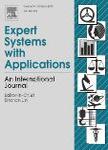版权所有:内蒙古大学图书馆 技术提供:维普资讯• 智图
内蒙古自治区呼和浩特市赛罕区大学西街235号 邮编: 010021

作者机构:Henan Polytech Univ Sch Software Jiaozuo 454003 Peoples R China Xi An Jiao Tong Univ Sch Comp Sci & Technol Xian 710049 Peoples R China Xi An Jiao Tong Univ Natl Engn Lab Big Data Analyt Xian 710049 Peoples R China
出 版 物:《EXPERT SYSTEMS WITH APPLICATIONS》 (Expert Sys Appl)
年 卷 期:2025年第270卷
核心收录:
学科分类:1201[管理学-管理科学与工程(可授管理学、工学学位)] 0808[工学-电气工程] 08[工学] 0812[工学-计算机科学与技术(可授工学、理学学位)]
基 金:National Key Research and Development Program of China [2022YFA1004100, 2020YFA0713900, 2021YFB2401300] National Natural Science Foundation of China [62172329, U1811461, U21A6005, 61772410, 61802298, 62166031] Scientific Studies of Higher Education Institution of Henan province [25B520010] Double First-Class Discipline Construction Project in Surveying and Mapping Science and Technology [GCCYJ202420] State Key Laboratory Cultivation Base for Gas Geology and Gas Control (Henan Polytechnic University) [WS2024B20] Fundamental Research Funds for the Universities of Henan Province [NSFRF230503]
主 题:Federated data imputation Generative adversarial network Auxiliary information generation Hint mechanism
摘 要:Missing data is a prevalent challenge in real-world applications, hindering the usability and quality of datasets. Data imputation, a method to substitute missing values, offers a solution. While existing techniques achieve promising results, they often rely on centralized data collection, raising privacy concerns. Existing methods for data imputation mainly utilize heterogeneous federation or optimization methods such as meta-learning. Although they can achieve personalized imputation, since they do not consider the impact of different data missing rates on the imputation quality, the imputed data may perform poorly in subsequent tasks. To address this, we propose a personalized federated approach FedImpute, from the perspective of data level. FedImpute tackles the challenge of balancing global model performance with local data customization to achieve robust imputation, whose core concept lies in leveraging the strengths of both global and local data perspectives. The global model captures universal patterns, while local models adapt to the unique characteristics of each participant s private data. To achieve this, FedImpute incorporates modules, including the clusterer and auxiliary classifier, to extract and utilize latent class information during the imputation process. This enables the model to prioritize similarities within similar categories, leading to more precise and personalized imputations. Extensive evaluations on four real-world datasets demonstrate that FedImpute overall outperforms existing methods, especially for high missing situations.